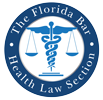The following are brief summaries prepared by section volunteers of new developments in Florida and Federal health care law that may be of interest to members of the Health Law Section. The summaries are presented for general information only as a courtesy to section members and do not constitute legal advice from The Florida Bar or its Health Law Section.
The summaries can be read here or downloaded from our document library here.
Professional Licensure
Board of Medicine’s Refusal to Mitigate Penalty Affirmed on Appeal
The Third District Court of Appeal recently affirmed the revocation of a physician’s medical license based upon his conviction for conspiracy to commit health care fraud. Gonzalez-Gomez, M.D. v. Department of Health, 38 Fla. L. Weekly D 32 (Dec. 19, 2012). The physician presented mitigating evidence to the Board at an informal hearing. The Board revoked the physician’s license based upon the disciplinary guidelines in Rule 64B8-8.001, Fla. Admin. Code. On appeal, the physician argued the Board disregarded its own precedent when considering his penalty. The Third District Court reviewed the imposition of discipline under an abuse of discretion standard and ruled the Board did not abuse its discretion because it imposed the minimum discipline specified in its disciplinary guideline and specified by statute. The physician pleaded guilty to conspiracy to commit health care fraud under 18 U.S.C. § 1349.
Denial of Attorneys Fees in License Discipline Case
On March 6, 2013 the Fourth District Court of Appeals in Mark N. Scheinberg, M.D. v. Department of Health, (No. 4D12-153, March 6, 2013) issued a PCA in the appeal of a Final Order denying an award of attorney’s fees to a physician whose disciplinary case was ultimately dismissed by the Board of Medicine. The physician went to a formal (evidentiary) hearing at DOAH and prevailed and the Board of Medicine adopted the Recommended Order of the ALJ dismissing entirely the disciplinary case against the physician’s medical license. However, in spite of finding that the physician was a prevailing small business party as defined in §57.111(3), Florida Statues, the ALJ determined that the Department of Health was substantially justified in prosecuting the case against the physician’s license, therefore, barring an award of attorney’s fees. The ALJ discussed the test for making determinations of awards for attorney’s fees and concluded that “the standard of review for an agency’s decision for purposes of section 57.111 is deferential – akin to a determination of whether the agency abused its discretion in acting as it did.” Mark N. Scheinberg, M.D. v. Department of Health, DOAH Case No. 11-4118F (December 22, 2011). In the Final Order, even though the ALJ described the Department of Health’s expert’s opinion as one that “should give a reasonable person pause regarding the persuasiveness of the opinion” the ALJ concluded that “it is unnecessary to probe too deeply.” The ALJ held that a reasonable person might believe the expert’s conclusion and that the Department of Health’s reliance on its expert was therefore sufficient to establish substantial justification so as to overcome an award of attorney’s fees under §57.111, Florida Statutes. Although the PCA is of little precedential value, the Final Order at DOAH is a precedent that establishes an extremely low bar for agencies to leap in avoiding payment of attorney’s fees to victorious licensees in disciplinary cases.
Reported By: Allen R. Grossman and Michael L. Smith
Health Information Technology & Privacy
Opis Mgmt. Resources, LLC v. Florida Agency for Health Care Admin., No. 12-12593 (11th Cir. Apr. 9, 2013)
The issue before us is whether section 400.145 of the Florida Statutes –which provides for the release of medical records of deceased residents of nursing homes to certain specified individuals—is preempted by the federal Health Insurance Portability and Accountability Act of 1996 (HIPAA), 42 U.S.C. § 1320d to d-9, and its implementing regulations. As it stands, § 400.145 and HIPAA cannot be reconciled, and we agree with the district court that the Florida statute stands as an obstacle to the accomplishment and execution of the full purposes and objectives of HIPAA in keeping an individual’s protected health information strictly confidential. Accordingly, we affirm.
Reported by Steven A. Grigas, Akerman Senterfitt
Miscellaneous
Florida’s Proposal for Settlement Rule/Offer of Judgment Rule was tweaked on April 11, 2013 to make it clear that you do not get five extra days to respond to a proposal for settlement. As amended the time provision of the rule now reads:
Rule 1.442 (f) Acceptance and Rejection.
(1) A proposal shall be deemed rejected unless accepted by delivery of a written notice of acceptance within 30 days after service of the proposal. The provisions of Florida Rule of Judicial Administration 2.514(b)do not apply to this subdivision. No oral communications shall constitute an acceptance, rejection, or counteroffer under the provisions of this rule.
~ ~ ~
Fla.R.Jud.Admin. 2.514(b) is the “+5 days for mail or e-mail” provision. In other words, if you serve/receive a proposal for settlement you have 30 calendar days total before the acceptance must occur (absent the grant of a motion for extension).
Reported by Steven A. Grigas, Akerman Senterfitt
